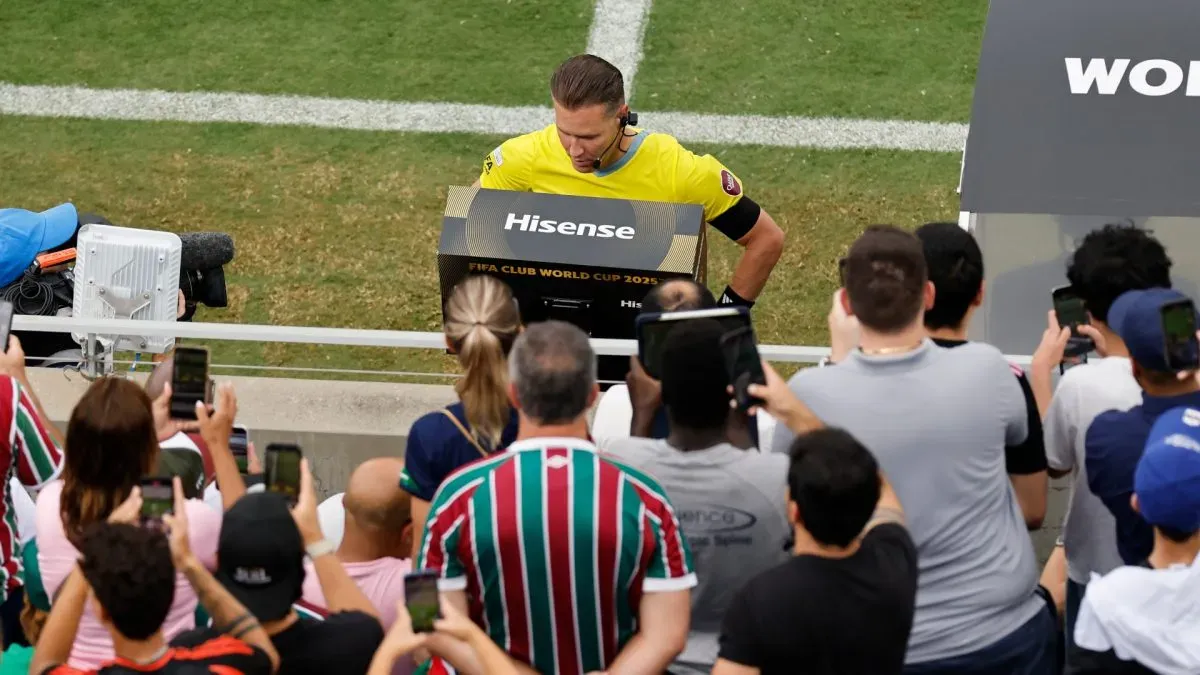- Home
- Advertise With us
- World News
- Tech
- Entertainment
- Travels & Tours
- Contact US
- About us
- Privacy Policy
Top Insights
FIFA to test radical VAR change at the U-20 World Cup in Chile

The FIFA U-20 World Cup in Chile will debut Football Video Support (FVS), a simplified and lower-cost alternative to VAR.
The upcoming FIFA U-20 World Cup, set to take place in Chile from September 27 to October 19, will introduce an experimental version of video review technology. Called Football Video Support (FVS), the system is designed to simplify the current Video Assistant Referee (VAR) model by reducing costs and avoiding unnecessary stoppages in play. The tournament will also feature Argentina’s U-20 national team, among other global powers.
Unlike VAR, which involves a team of officials working from video booths, FVS will be managed by fewer personnel directly on the field. The major innovation is that coaches—not referees—will control when a review is triggered.
Each coaching staff will receive a green card to request a review, with a maximum of two challenges per match. These requests can only be used for specific, game-changing incidents:
- Goals
- Penalty decisions
- Direct red cards
- Mistaken identity of players

Why FIFA is testing FVS
The main objective of this initiative is to provide a more affordable alternative to VAR for federations and leagues around the world that lack the financial resources to implement the full system. According to FIFA, this simplified model could broaden access to video technology across developing soccer nations.
The FVS system will be in operation across stadiums in Santiago, Valparaíso, Rancagua, and Talca, providing officials with their first experience managing this new technology in a high-stakes youth World Cup.
Previous trials of the system
This is not the first time FIFA has tested FVS. The system was previously used in the Blue Stars Youth Cup in Switzerland and at the FIFA U-20 Women’s World Cup in Colombia in 2024. Both tournaments were seen as successful pilots, paving the way for its debut on a larger global stage.
What FIFA officials are saying
Pierluigi Collina, chairman of FIFA’s Referees Committee, highlighted the significance of this trial: “It is essential that referees have the opportunity to participate in tournaments with the stars of the future and that we continue to test the FVS system, which so far has been a great success.”
Similarly, Massimo Busacca, FIFA’s Director of Refereeing, emphasized the choice of Chile: “Chile is a soccer-loving country, and this is an excellent opportunity to ensure this edition leaves a refereeing legacy. The U-20 World Cup is a highly competitive tournament that demands strong interpretation of the game.”
Related Articles
General Assembly Updates: After Meeting With Zelensky at U.N., Trump Shifts Stance on Russia
President Trump said Ukraine might be able to reclaim all its lost...
9/23: CBS Evening News
Man convicted in Trump assassination attempt tries to stab himself with pen...
CFTC initiative to allow stablecoins as collateral in derivatives markets
US Commodity Futures Trading Commission acting chair Caroline Pham said her agency...
OranjeBTC acquires 3,650 Bitcoin for $385 million
OranjeBTC’s acquisition highlights the increasing trend of corporate Bitcoin adoption as firms...









Leave a comment